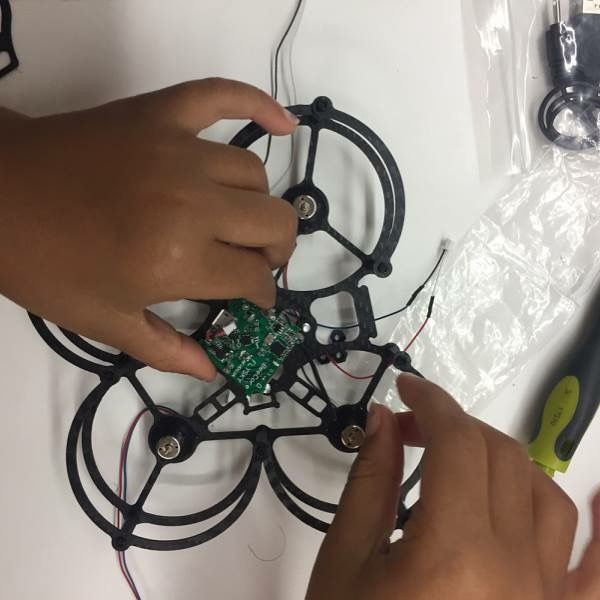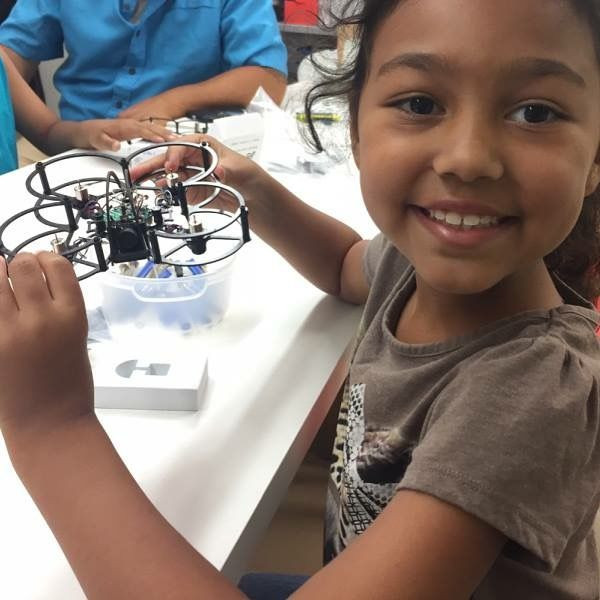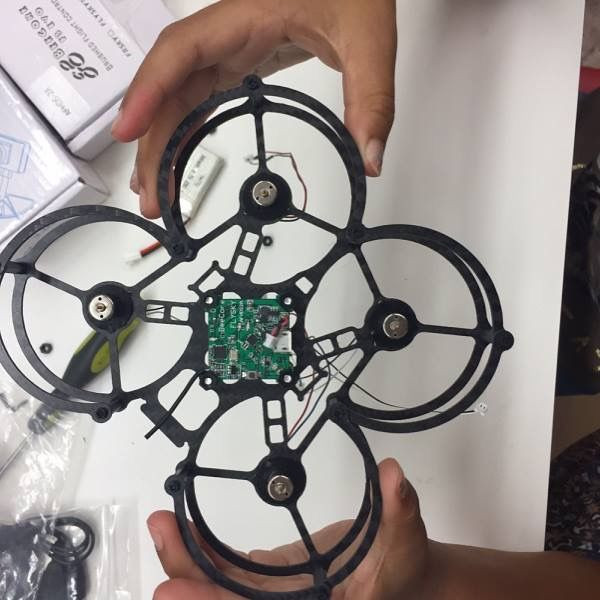Program Allows Kids To Build And Fly Drones, While Helping Them Grow In STEM Fields

A new program called Project Icarus is teaching kids how to build drones, while at the same time helping them grow in STEM fields, which focus in science, technology, engineering and mathematics.
Project Icarus, launched by the Texas-based Flynoceros Racing Drones, is a workshop that not only allows kids to build drones, but also teaches them how to fix and fly them. This is different from drone kits bought at stores that don’t show users how repair them.
Read: DJI's New Spark Camera Drone Weighs Less Than A Can Of Soda, Controlled By Hand Gestures
Although parents can buy a drone kit at a retail store, those products are sometimes cheap and can break easily after crashing. That’s where Flynoceros steps in. Drones for Project Icarus are made from the same materials that are used in high-end racing drones, and are based on open source software.
Dani Dias’ seven-year-old daughter Ava participated in a Project Icarus workshop. Ava was able to build a drone and fly it after the $150 session.
“She couldn’t believe it,” Dias told International Business Times about Ava’s excitement about building her drone. “She didn’t think it would be something she would be able to do or build. She said ‘Wow, really?’ and kind of didn’t believe.”
After building the drone, the two tested Ava’s creation and other advanced drones.
“[We] then were able to fly the bigger drones to show how they could evolve theirs,” Dias said. “She was wowed by the technology. Flying the drone was her favorite part.”


Read: Amazon Granted Patent For Drone-And-Parachute Delivery System
Overall, Ava is interested in technology and is currently learning to code. Being an engineer or scientist are two options she’s looking at for future career choices. The drone program helped Ava grow, her mother said.
“She has more confidence when it comes to problem solving,” Dias said. “She knows that there is always a way, you have to just change the way you’re looking at things.”
“The thing about drones is that they embody multiple fields in the STEM realm,” said Josh Ingram, who started Flynoceros and teaches kids. “Everything about the assembly of the drone you’re learning something about electronics, how they work together, concepts like negative, positives, battery, engineering, thrust.”
Project Icarus At Schools
Ingram has seen a big response about the workshop from education groups, summer and afterschool programs and from teachers who are trying to integrate robotics into their classrooms.
There is also a girls-only group that reached out.
“We’re really trying to engage little girls into this,” said Ingram who has a daughter and another one on the way. “It’s really important to me.”
Dias said there weren't many girls in the workshop but said she hopes Ava's experience bring more into the fold.
“There aren’t many girls right now but when we show your friends how fun it is we can recruit them over,” Dias told Ava.
In workshops, those with experience in robotics can assemble the kit in 30 minutes, while those who don’t have experience can take about two hours, Ingram said. Kids under 12 are able to assemble the drone on their own. The younger ones, which can be as young as seven, can have their parents assist them by holding or handing pieces.
Ingram has also started a Kickstarter to take Project Icarus to consumers, but regardless of the campaign the kits will be on the market, Ingram said.
© Copyright IBTimes 2025. All rights reserved.





















